Want some privacy around your house? Or, are you tired of running after your toddlers and pet? If your answer is ‘yes’ and ‘yes’ to these questions, we believe you’re in dire need of a fence.
To be honest, choosing a fence isn’t an easier task either. With so many options available, from wooden to vinyl to even metal fences, it can be overwhelming for you to decide.
Well, we hear you! To your rescue, we’ll be dissecting all the properties of vinyl and wooden fences and comparing them in detail to find out which of these two options fits you the most. So, what are we waiting for? Let’s begin the competition!
Vinyl Vs. Wood Fence
Vinyl fences and wood fences come with their own set of advantages and disadvantages. There are some priceless properties that vinyl fencing offers, whereas wood fences excel in some other categories.
So, let’s consider seven essential properties of a fence- durability, aesthetics, property value, cleaning and maintenance, repairs and replacement, ease of installation, and cost-effectiveness into consideration and compare our two fencing options based on these categories. Let’s get started!
1. Durability
Vinyl fence, in general, lasts almost twice as long or even longer as the wooden fence does. Many vinyl fences often come with a lifetime warranty.
If you want numbers, you can expect vinyl fences to last for 100 years if well maintained. Whereas wooden fences have a shorter lifespan and can last about 20 years with proper maintenance and frequent repairs.
The major culprit behind the decreased durability of wooden fences is moisture. Wood is susceptible to moisture damage. Thus, wooden fences imbibe water, sag, and in the worst-case scenario, might even rot.
Likewise, not every brand of wood fencing provides insect and termite resistance. However, you can prevent these forms of wood damage using paints or preservative sealants. But the thing is that it might need refinishing every few years.
Nevertheless, some forms of woods, such as tropical hardwoods, redwoods, and cedar, are naturally more resistant to moisture and pests. Moreover, chemically-treated or pressure-treated top-branded wood fences are also likely to last relatively longer.
A vinyl fence, on the other hand, has no issue with moisture and pests. They do not rot or decay, and this fact alone boosts their lifespan by decades.
2. Aesthetics
Well, let’s be honest, both the vinyl and wood fences do a brilliant job when it comes to aesthetics. Wood, as we all know, has a rustic classic appearance that many homeowners seem to prefer.
The unique grain on each picket and the natural texture and warmth of wood surely looks fantastic on fences. Moreover, you can choose your wood fence to be of any color. Wood fences also come in a multitude of designs, from scalloped picket-style fences to full-privacy vertical board fences.
Vinyl fences also give wood a stiff competition in this criteria. If you had thought installing a vinyl fence on your property wood mean installing a plain white boring fence, well, you’re absolutely wrong!
These days, vinyl fences offer a variety of patterns such as wood and stone to imitate the natural look. You can also choose interesting post caps and picket caps to play with the aesthetics. So, undoubtedly, both the vinyl fences and wood fences have fantastic curb appeal.
3. Property value
As long as the fences are clean and well-maintained, both wood and vinyl fences help improve your property value. You just have to make sure that the wood fence, if you have one, should be rotten or decayed.
In the case of vinyl, just ensure the fence is clean and doesn’t need any major repairs. However, remember that many might buyers prefer the traditional wooden appearance on the fences.
4. Cleaning and maintenance
Since the upkeep of the home in itself is already draining, we usually don’t have time and energy to often clean the outdoor, including the fence. So, it’s natural for most of us to be inclined to the fencing system that requires minimal maintenance and is easy to clean.
Well, the good news is that vinyl fences are incredibly low maintenance. And, a period rinsing with a garden hose or a pressure washer does the job with brilliance.
On the other hand, it might need a bit more effort to clean a wood fence. As wood is susceptible to moisture, mold and mildew might make themselves at home on your wood fence. To clean them, you might need to scrub them using cleaners.
Wood fences also need repainting and resealing with preservatives every once and then. This refinishing cost does make the overall maintenance cost for wood fences costly in comparison to vinyl fences.
However, also remember that if your vinyl fence is sleek and white, it will, without a doubt, look dirty faster than the wooden ones. So, you might need to clean it more frequently. Or, to avoid the problem, just get a vinyl fence of other colors and patterns.
5. Repairs and replacement
It is quite obvious that both the vinyl and wood fences need occasional repairs. Vinyl fencing under heavy pressure might come apart, and wood fences might also need repairs and boards replacement after any type of damage.
But the repair of vinyl fence is fairly easy, and most homeowners can do so on their own. Moreover, as these fences are pest and moisture resistant, you don’t have to worry about sagging or decaying pickets.
However, on the downside, as vinyl fence often comes as pre-fabricated panels, damage to a picket or two might require you to replace the entire panel and can cost you expensive.
In case of repairs and replacements in wood fences, you can easily replace only the part that is damaged and will cost you a lot less. However, if not experienced in woodworking, homeowners will have to seek costly professional help for the purpose.
6. Ease of installation
Usually, homeowners must build a wood fence instead of installing pre-made panels. That being said, you do have an option of installing prefab wood panels these days. You can simply connect them to posts using brackets and nails.
However, if you decide to build one and you don’t have the required tools and expertise for the purpose, you’ll need to hire professionals, which can be costly.
On the other hand, vinyl fences are very simple to install, as most of them come as prefab panels. Posts have notches to hold in and lock the panels in place, and if they don’t, one can simply attach the panels using brackets.
So, relatively it is easier to install a vinyl fence, which with a proper guidance manual and tools, homeowners can DIY install these fences with ease.
7. Cost
Depending upon the style and quality, both vinyl and wood offer cheaper as well as expensive fences. But generally, vinyl fences are more expensive than wood ones.
However, considering that you can DIY install it by yourself and how low-maintenance and durable vinyl fences are, over the long run, vinyl fences undoubtedly prove to be the most budget-friendly fencing type.
Untreated and pinewood fences cost the cheapest, and the price range increases with an increase in the wood quality, i.e., tropical hardwood fences are costly relatively.
Also, you must also consider the size of your yard prior to the installation. Unless you plan on living in the house for decades, you don’t have to spend your limited budget on fencing your large yard entirely with a vinyl fence. It’s a better idea to invest in a wood fence for a temporary purpose.
But if you have a smaller yard relatively and have the budget to invest in vinyl fences, we’d say go for it!
8. Sustainability
Mindfully harvested woods are the most eco-friendly. While from the durability point of view, tropical hardwoods are the best, these woods are becoming more endangered these days. What’s more, they also take longer to grow.
Modified and treated softwoods are also a great choice for fencing. They grow relatively quick and also are durable than non-treated ones.
If you find vinyl fences made up of recycled vinyl, that’d be the best in terms of sustainability. Moreover, since vinyl fences are very durable, you don’t have to worry about replacing them, at least for a few decades. This fact alone increases the sustainability of vinyl fences.
If the production process of the fences is clean, both the wood and vinyl fences are fairly sustainable. So, if you’re conscious of not buying unsustainable products, as one should be, discuss the manufacturing and sustainability of the fences with the manufacturer or the supplier.
Summary
So, when it comes down to the final decision, it’d be best for you to rely on your own criteria and preferences. If you want that wooden appeal to your fences and don’t mind the periodic maintenance, wood fences are fantastic.
But if you lack the effort for such hectic upkeep, have the upfront budget, and in general, just love the aesthetics of vinyl fences, that’s great too. We hope you make the apt decision!
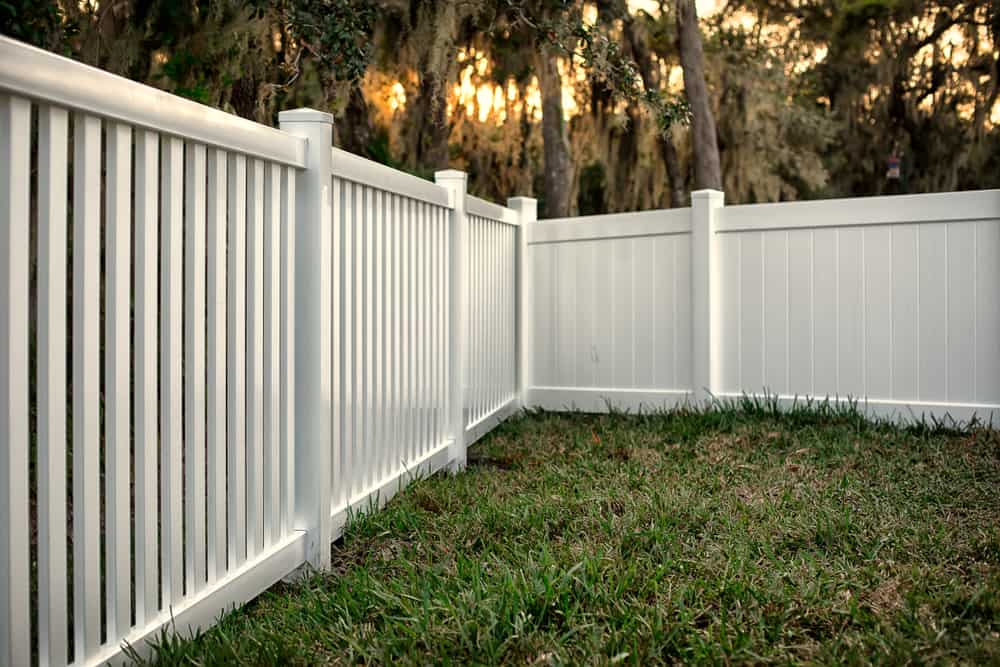
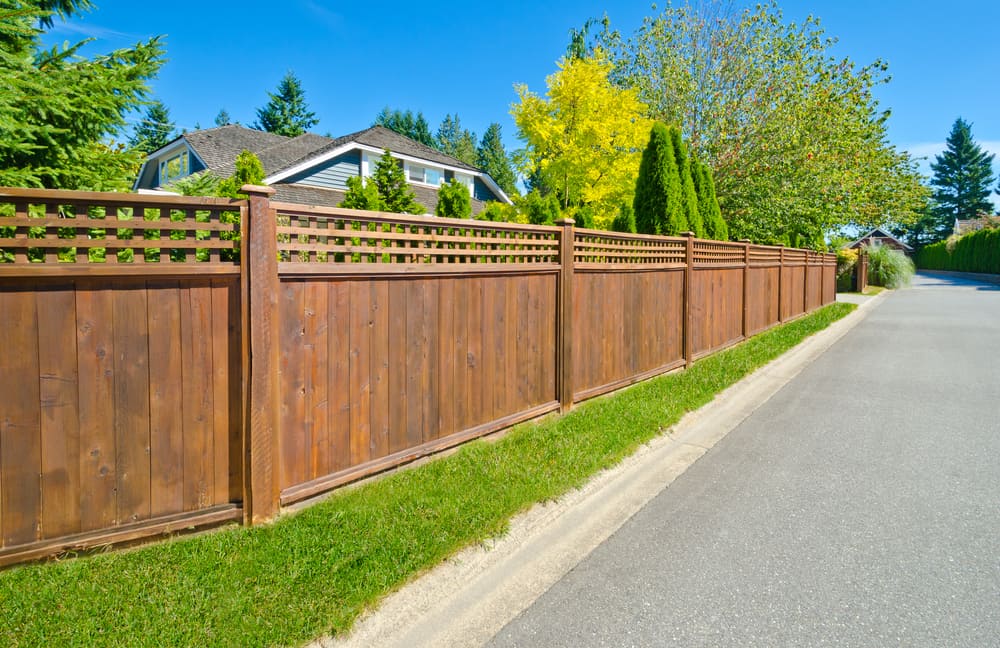
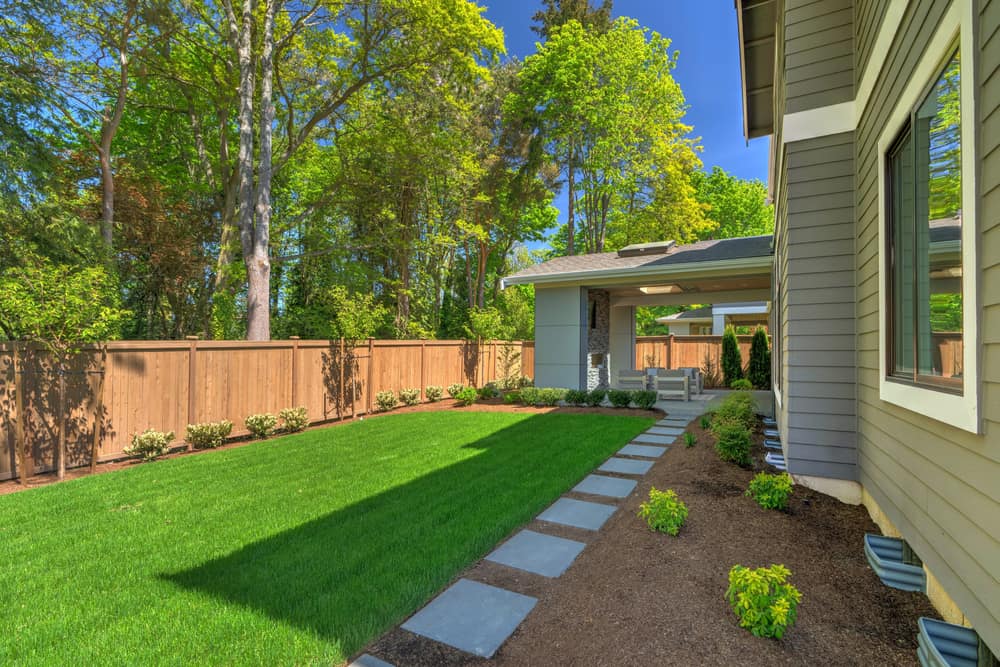
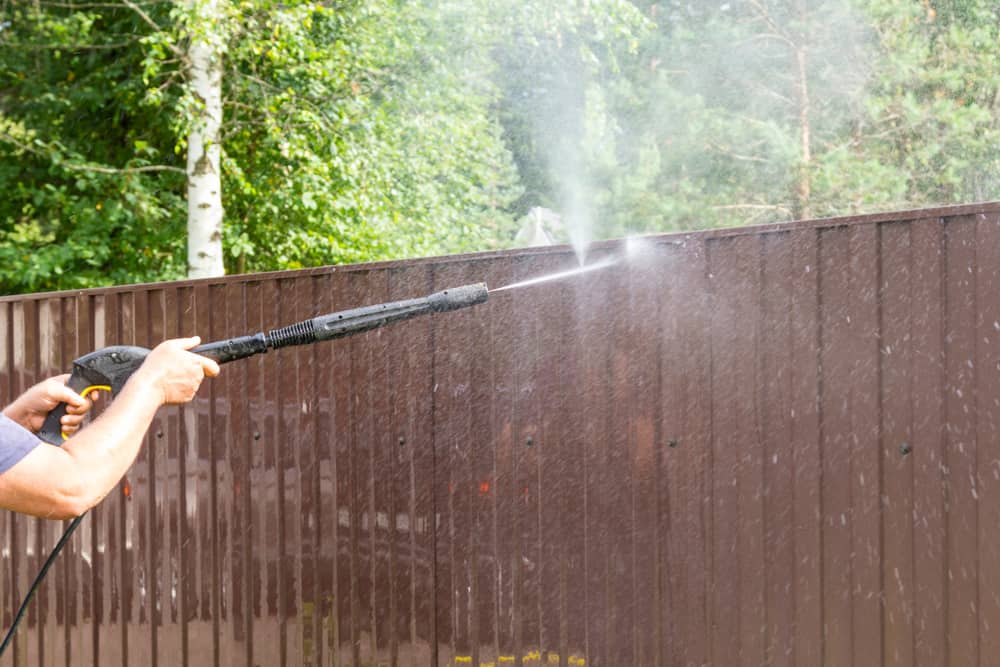
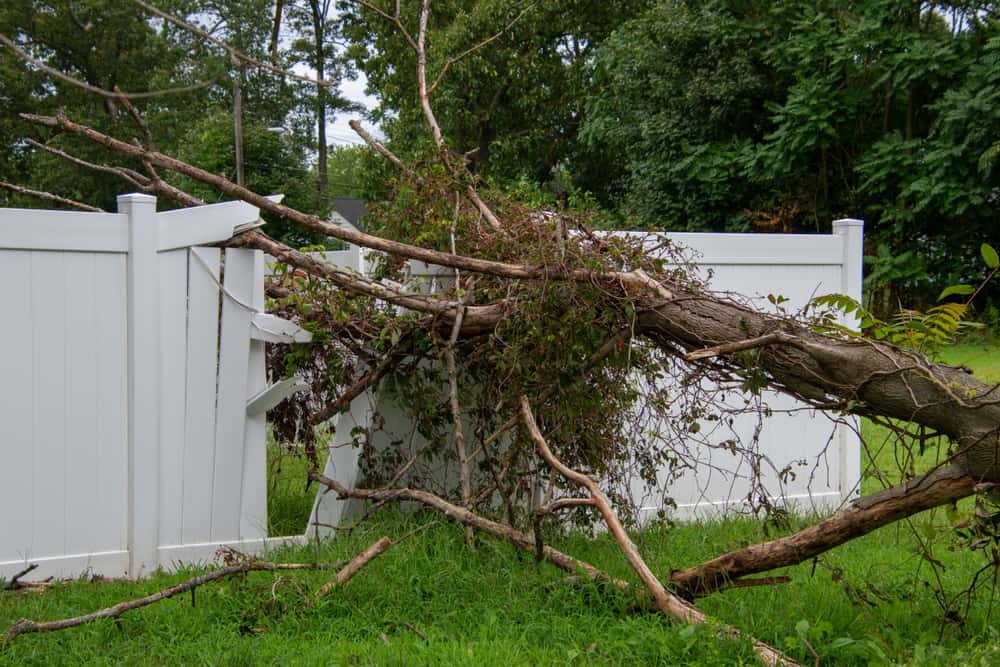
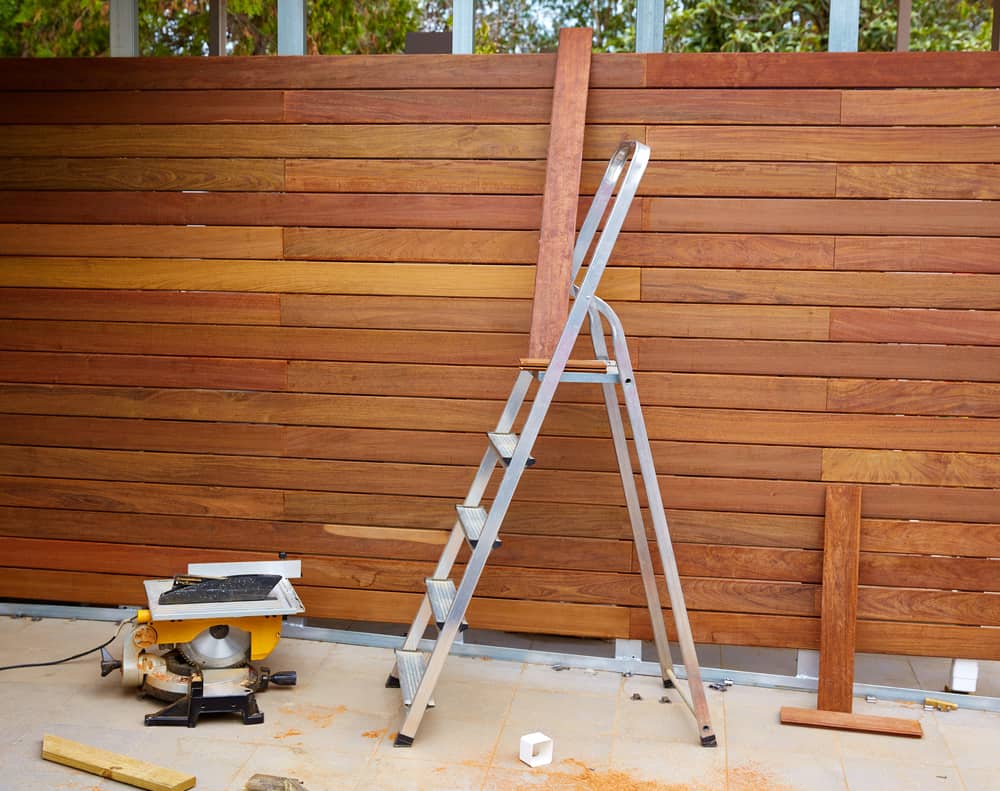
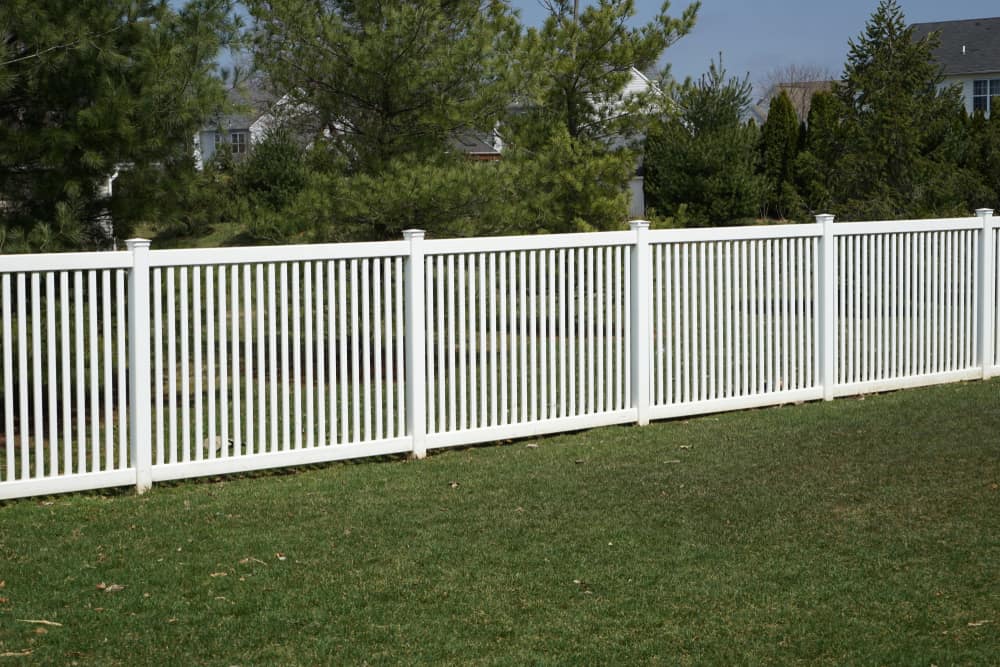
How great that you mention that vinyl fencing has no problems with moisture or pests. I am building a new home this year and I want to have a great fence. I will find a great PVC fencing installation service in our area.
It was interesting to me when you mentioned that vinyl fences are very simple to install. With that in mind, I would think that it would be important to make sure that you are digging deep enough holes so that your fence posts can be stable. If you don’t have the right tools to dig deep enough holes, it could be a good idea to find a fence contractor to work with.
I think it depends on what you’re looking for. Vinyl fences are cheaper to maintain, but they can be damaged by weather and pests. Wood fences are more expensive up front, but they last longer and are less likely to be damaged by
As a homeowner who’s been through the process of choosing a fence, I can attest to the dilemma it can be. The detailed breakdown of aspects like durability, aesthetics, property value, and sustainability is quite informative. In my experience, the decision ultimately came down to personal preference and budget, and this post does a great job helping readers weigh their options.